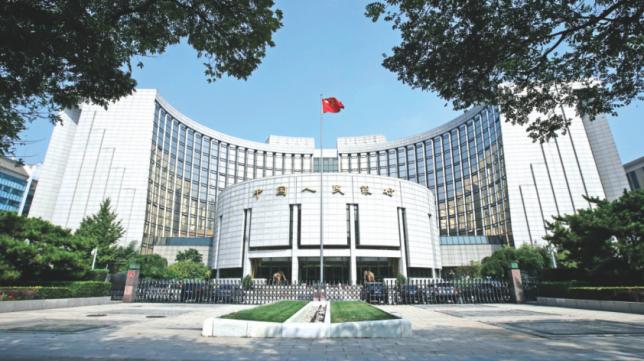China's credit loosening may not do much for commodity demand

China's commodity imports may get a shot in the arm from Beijing's decision to ease credit conditions in the world's second-largest economy, but it may not be as big a boost as followed prior monetary loosening.
The People's Bank of China on Sunday announced a steep 100 basis point cut in the level of cash that banks must hold as reserves, matching a similar move in April.
The easing of the reserve requirement ratios (RRRs) will inject a net 750 billion yuan ($109 billion) into the banking system, making it easier for banks to extend credit.
The loosening of monetary conditions appears to be aimed at shoring up confidence in China's economy, which has been battered by the escalating trade war with the administration of US President Donald Trump.
There are signs that China's economy is feeling some pain from the tariff barriers being erected, with equity prices struggling and certain indicators, such as fixed asset investment, trending weaker.
In prior years, relaxing credit conditions has resulted in much of the freed-up cash being used for infrastructure and housing construction, thereby boosting demand for raw material such as iron ore, steel and copper as well as thermal and coking coal for energy to process them.
There is generally some expectation that the extra cash in the economy will flow through to additional spending on commodity-intensive activity, such as building railways and apartment buildings.
But it's worth noting that April's lowering of the RRRs didn't really do much for the level of iron ore imports, which have remained in a narrow band for much of the year, and are down 0.5 percent in the first eight months of the year compared with the same period in 2017.
Coal imports have been stronger so far in 2018, but this is more likely a reflection of stronger demand for thermal power generation, as well as robust steel output and production restrictions on the domestic industry.
Official trade data for September has yet to be released, but vessel-tracking data compiled by Refinitiv suggests a pullback in seaborne coal imports in the month.
China's seaborne coal imports were 16.3 million tonnes in September, the data showed, down sharply from 19.9 million tonnes in August and the weakest month since February last year. A drop in coal imports may not be too surprising given it's currently the shoulder season between the summer and winter power demand peaks, and higher prices may also have caused some reluctance among Chinese buyers.
Iron ore imports also tracked weaker in September, but not by much, with the Refinitiv data estimating 86.4 million tonnes, down from August's 87.3 million.
Iron ore imports this year have held in a remarkably steady range, according to the vessel-tracking data, with March's 81.4 million tonnes being the softest and May's 91.3 million being the strongest.
What the data suggests is that China's demand for iron ore hasn't been much affected by either the trade dispute with the United States, or by earlier stimulus efforts.
Iron ore prices in China were also largely unmoved by the easing of credit, with Dalian Commodity Exchange futures opening slightly stronger after the week-long national day holidays.
The front-month contract rose as high as 499.5 yuan ($72.40) a tonne in early trade on Monday, up from a close of 493 yuan on Sept. 28, but by midday it was trading around 494 yuan.
This is perhaps recognition that any stimulus will take some time to work its way through the system and if there is any boost to commodity demand, it will take several months to materialise.
